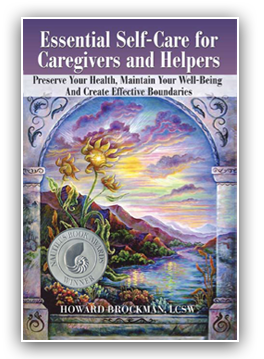Stats on Depression and Anxiety
It is now being reported that approximately 10 percent of the population is suffering from depression. Three percent of adults have major depression. According to the Centers for Disease and Prevention (CDC), major depression is the leading cause of disability for Americans between the ages of 15 and 44. Did you have any idea how prevalent depression is in our country?! The National Institutes of Health report that at least 40 million American adults ages 18 and older suffer from anxiety disorders. That comes out to be 18 percent of the entire population. This is not referencing to situational anxiety that disappears after a stressful event. We are talking about anxiety that lasts at least six months and doesn’t get better without treatment. These types of anxiety includes panic attacks, post-traumatic stress disorder (PTSD), phobias, and generalized anxiety disorder. (Arch Gen Psychiatry 05;62 (6): 617-627) Both of these disorders are treatable with the appropriate psychotherapeutic approaches. While many sufferers end up getting powerful brain-modifying medications from their family doctor, symptoms are frequently reduced but the source of the problem is generally not addressed nor resolved. Thus medication become habituated in order to keep the depression or anxiety at bay. There are non-medication solutions however. I have been treating depression and anxiety-related disorders for decades and I get excellent results. While it is unethical for any healthcare practitioner to guarantee or predict therapeutic outcomes, I can honestly say that positive therapeutic results happen more frequently than not. You must decide for yourself what route you want to take. Medication is much more convenient–visit your doctor and then take your daily pill(s). Good psychotherapy that gets to the source of the problem to eliminate the symptoms takes longer, depending on how long you have had the problem. Usually the problem is resolved within 10-sessions and frequently even more quickly. If you are curious and prefer to avoid the medication route it would be appropriate to call, email and inquire about how to proceed. Posted by Howard Brockman, LCSW February 15,...
Read MorePsychotherapy or Psychiatry?
Is psychotherapy falling away to the evolving new “life-enhancing” drugs that science is now promoting for improving our well-being? Is it actually more effective to take your daily pills instead of confronting the challenges of daily life with curiosity and openness to change? Check out this article that discusses these issues–it will help you to decide what path is best for...
Read MoreHow Valuable is Sleep to You?
For most people getting a good night’s sleep is essential for well-being and maintaining a positive mental attitude. This totally makes sense, yes? Yet life style and media over saturation can sabotage one’s best efforts to get enough sleep. I have inserted a link to a brief article that recommends a number of strategies that anyone can implement to sleep well consistently and deeply. One in particular is how the light frequencies from our electronic devices (particularly blue light) prevent the brain from secreting sufficient melatonin that supports our sleep. Did you know that there are inexpensive glasses you can wear in the evening that will block this blue light emanating from your Kindle or iPad late-night reading? If you want to find out more click on this link from the Daily Beast and improve your sleep: http://www.thedailybeast.com/articles/2013/12/03/six-secrets-of-sleep-hacking-to-get-more-effective-rest.html. Posted by Howard Brockman, LCSW December 9,...
Read MorePrevent Alzheimer’s Disease
The following article from The Daily Beast describes new research that indicates proper diet and exercise significantly eliminates the chances for developing the dreaded brain disease. Check out this link. http://www.thedailybeast.com/articles/2013/08/22/why-we-can-and-must-focus-on-preventing-alzheimer-s.html. Posted by Howard Brockman, LCSW August 22, 2013...
Read MoreDepression, Mindfulness and the Inner Critic
There is a great deal of current research about how various meditation practices actually change the brain in positive ways. This is incredibly exciting and with the help of functional brain scans, researchers can see in real time what parts of the brain are stimulated and calmed through these practices. Parts of the brain related to higher brain function have been measured and have actually increased in size from these meditation practices. This is called neuroplasticity. Some meditation practices teach how to concentrate on one specific image or mantra to help focus the mind. An important and emerging meditation technique is associated with Buddhism and is called Mindfulness. It is actually being integrated into many Western psychology practices not just because of its effectiveness but because it does not require people to embrace a belief system different from what they already have. Reflective thinking and even calming breathing that reduces stress are aspects of Mindfulness. While there are components of this that require sitting for periods of time, I help people to learn to be more present and accepting of what is happening without the tendency to judge. This is challenging because most of us have a dominating inner critical voice that judges, condemns and criticizes us all the time. Our inner critic has often become habituated and over time corrodes our sense of self-esteem. This can become self-destructive and lead to both depression and anxiety of constantly feeling insufficient or “not good enough.” Acceptance of the things going on around us that we cannot change coupled with a deepening understanding of the power of forgiveness is very liberating. This type of Mindfulness practice is something that one learns to cultivate all the time in all circumstances, not just when sitting down in a formal meditation posture. This really is about changing our attitudes and even our identity. Chronic anger has been shown to actually damage the heart over time. Mindfulness helps to provide greater acceptance versus the tendency to control, often a major component to keeping anger fueled. The key to this work is acknowledging our inner critic and discovering ways to quiet its voice so that we can progressively feel more self-accepting and peaceful in our day-to-day life, both at work and at home. Posted on July 29, 2013 Howard Brockman,...
Read More



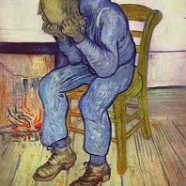
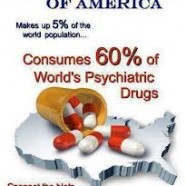
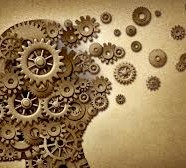
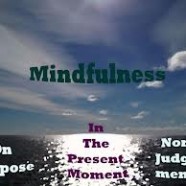
 Howard Brockman, LCSW is a psychotherapist who has been in private practice for 32-years. He is a Diplomate in Clinical Social Work and The Association of Comprehensive Energy Psychology. He has a master’s degree in Social Ethics/Religious Studies from the University of Southern California and a master’s degree in Social Work from Portland State University.
Howard Brockman, LCSW is a psychotherapist who has been in private practice for 32-years. He is a Diplomate in Clinical Social Work and The Association of Comprehensive Energy Psychology. He has a master’s degree in Social Ethics/Religious Studies from the University of Southern California and a master’s degree in Social Work from Portland State University. 
